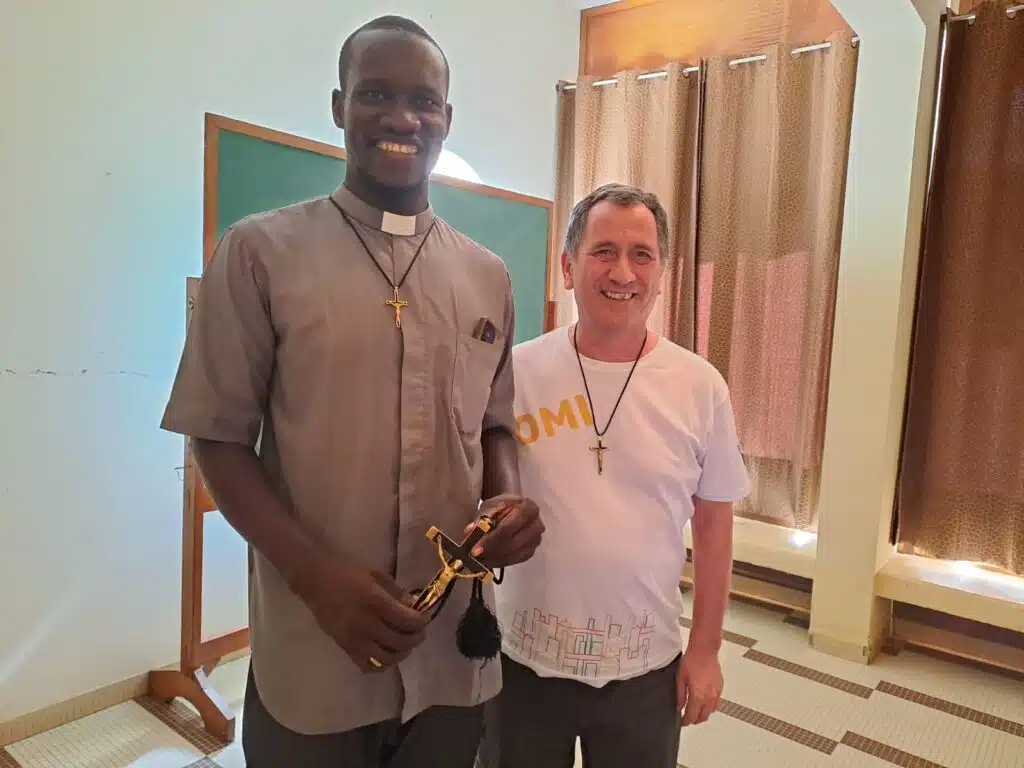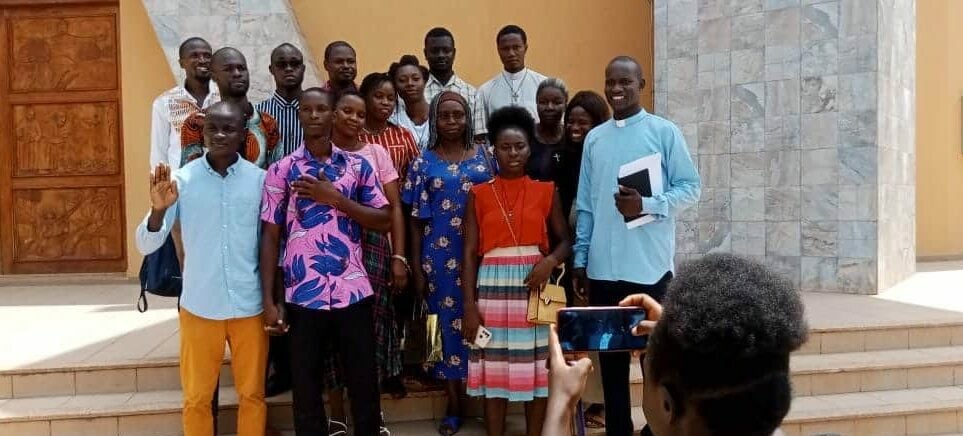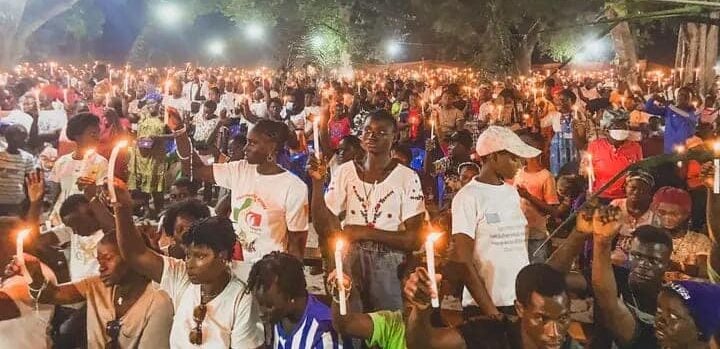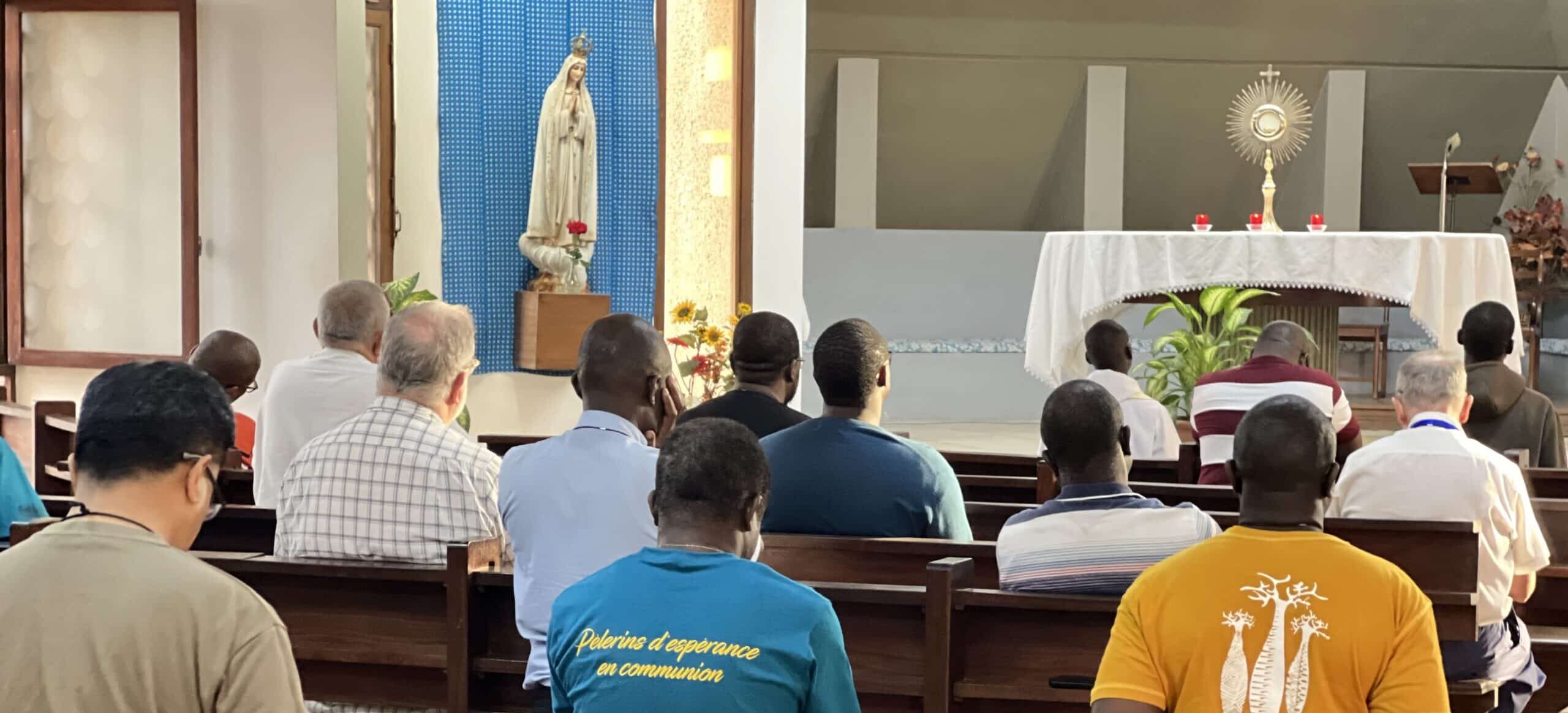Jules Joseph DIEDHIOU, OMI
The mission of Antula, in all its complexity and particularity, is a noble mission, immense and well adapted to the Oblate charism. It is characterized by a fairly high demography, with young people making up the largest percentage of its population.
The city of Antula is a large suburb of the capital of Guinea-Bissau, which is experiencing rapid socio-economic growth. Its new configuration challenges our missionary awareness of the current challenges and obliges us to see, judge and act well in order to better manage it pastorally and pertinently.
The Socio-Cultural Situation of our Mission
We find modest, accessible, welcoming, and respectful people. We also note the challenges that characterize the people: poverty, lack of social assistance, protection of minors, difficulties in education, vocational training and health, very high unemployment, broken families, juvenile delinquency, and famine. The Lusophone colonial mentality (parties and irrational spending), the consequences of previous wars and political instability are among the problems holding back the country’s emergence.
The Pastoral Situation
There are many tasks and much to be done. Guinea-Bissau is a religious people, and several confessions coexist. Every year, we have many new adherents to the Catholic Christian faith. We see a lot of willingness on the part of some Christians to be formed, supervised, and accompanied in their spiritual growth with Christ. However, the challenges are enormous: syncretism, the weight of culture and traditional religions, sects (more than fifteen non-Catholic churches in our apostolic jurisdiction) and the lack of priests. However, we must point out that there is a lack of initiative and adequate tools to respond to and face the challenges of the times and the problems of modern and urban culture that our mission is confronted with.
In our humble opinion, a traditional and repetitive apostolate carried out by generations of apostolic workers is irrelevant. We need to dare, as big as the world, to make new openings, to take corresponding initiatives, and to establish new contacts and approaches to the reality of men and women in their existential autochthonies. This means daring to descend with them into their “existential infernos” and their living conditions, helping them to emerge in the contemplation of the Splendor of Christ. Do we dare to be pastoral agents with “dirty hands,” to touch and experience human misery, a “Church,” and an “apostolic community” that ‘goes forth’ and reaches out, as Pope Francis says? Dare, without being discouraged, to cast our nets once again on the word of the Master. This desire to evangelize must be strongly nourished by Eucharistic adoration and fidelity to prayer. As the Constitutions and Rules remind us:
The Eucharist, source and summit of the Church’s life, is at the heart of our life and action. We will live such lives as to be able worthily to celebrate it every day. As we participate in its celebration with all our being, we offer ourselves with Jesus the Saviour; we are renewed in the mystery of our cooperation with him, drawing the bonds of our apostolic community ever closer and opening the horizons of our zeal to all the world.
– Constitution 33
Therefore, missionaries today must, to quote Saint Eugene de Mazenod, work earnestly to become saints, walk courageously along the same paths as so many Gospel workers, who have left us such beautiful examples of virtue in their ministry (…) to live in a habitual state of self-denial (…) to live in a habitual state of abnegation and in a constant desire to reach perfection, working unceasingly to become humble, meek, obedient and detached from the world (…) to sacrifice all their goods, their talents, their rest, their person and their life for the love of Jesus, the service of the Church and the sanctification of the poor.
– Preface to the CCRR
Concluding Remarks
In order to serve better in the vineyard of the Lord, assuming with faith and responsibility the challenges of our mission in different cultures, we propose:
- The specialized formation of young priests in the service of justice, integrity and promoting human values in their respective missions.
- Encouraging and promoting a missionary culture and taste among young and future priests. In a spirit of communion and synodality, encouraging opportunities for the expression and realization of pastoral initiatives in the apostolate as a whole. Ongoing formation in missiology and Oblate missiology.
- Creation of centers and places in our missions specifically dedicated to mission promotion, welcoming people, and listening to their spiritual needs. Creation of a place for the formation of lay people in evangelization or a space for young people. Associate and collaborate more with our baptized brothers and sisters in the evangelizing task that is common to us all.
- That our communities be open missions: “Bethlehem”, not missions closed in on themselves. To support the mission and missionary projects in a new way, for a credible and profound pastoral ministry, so that it has a real and charitable impact on those for whom it is intended, i.e. the poor.

Fr. Jules Joseph DIEDHIOUOMI, Guinea-Bissau





